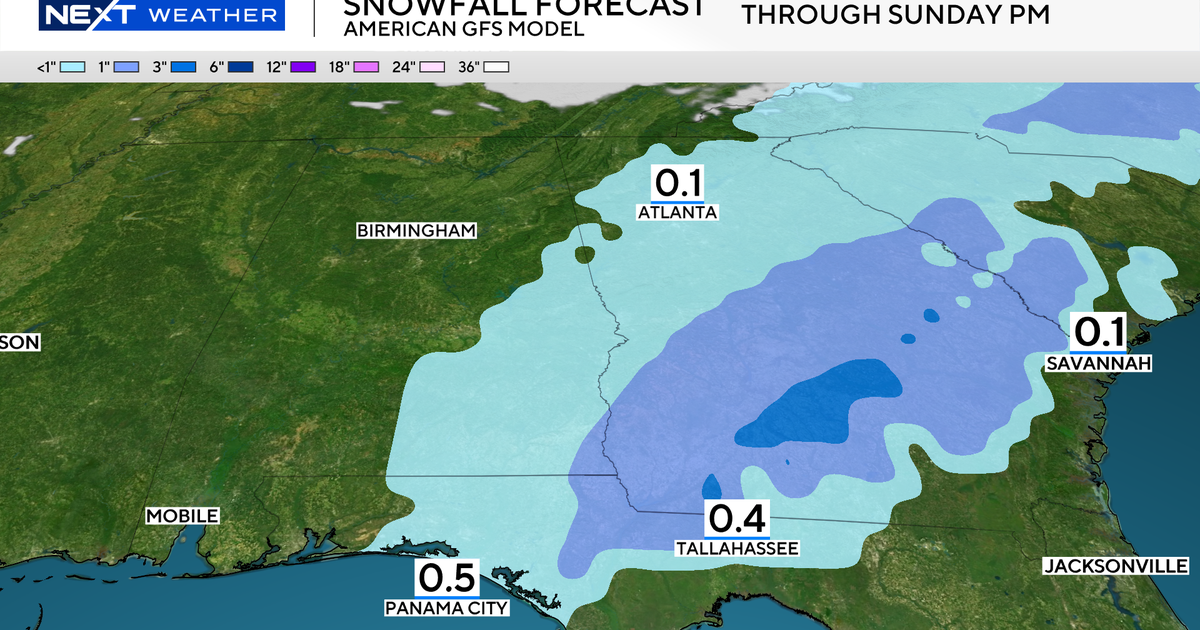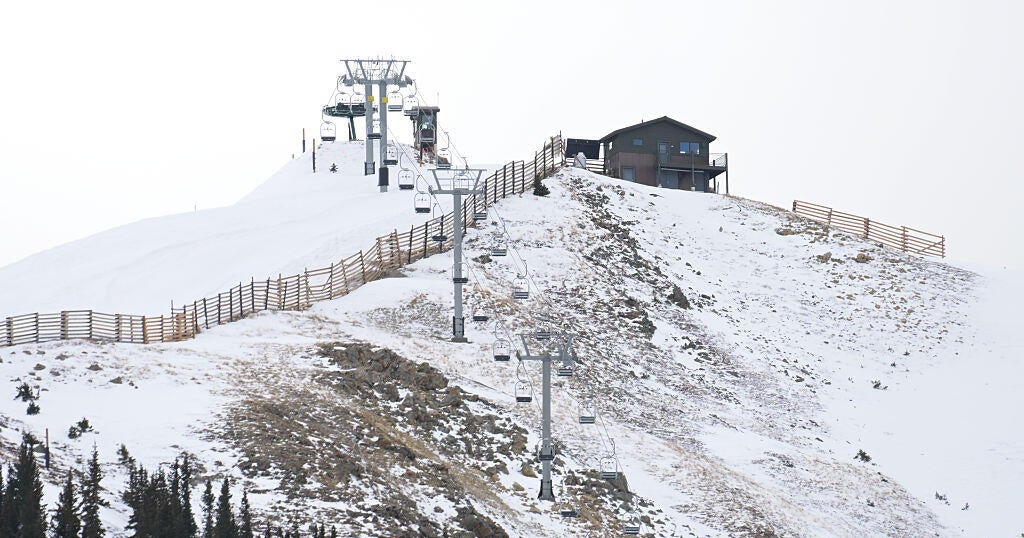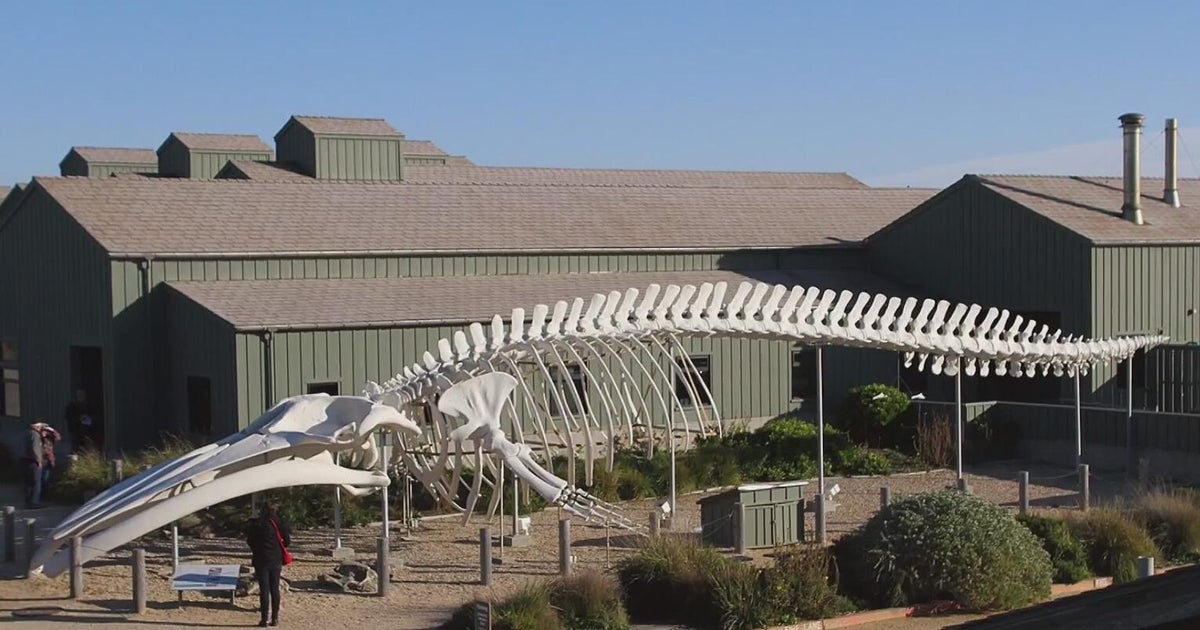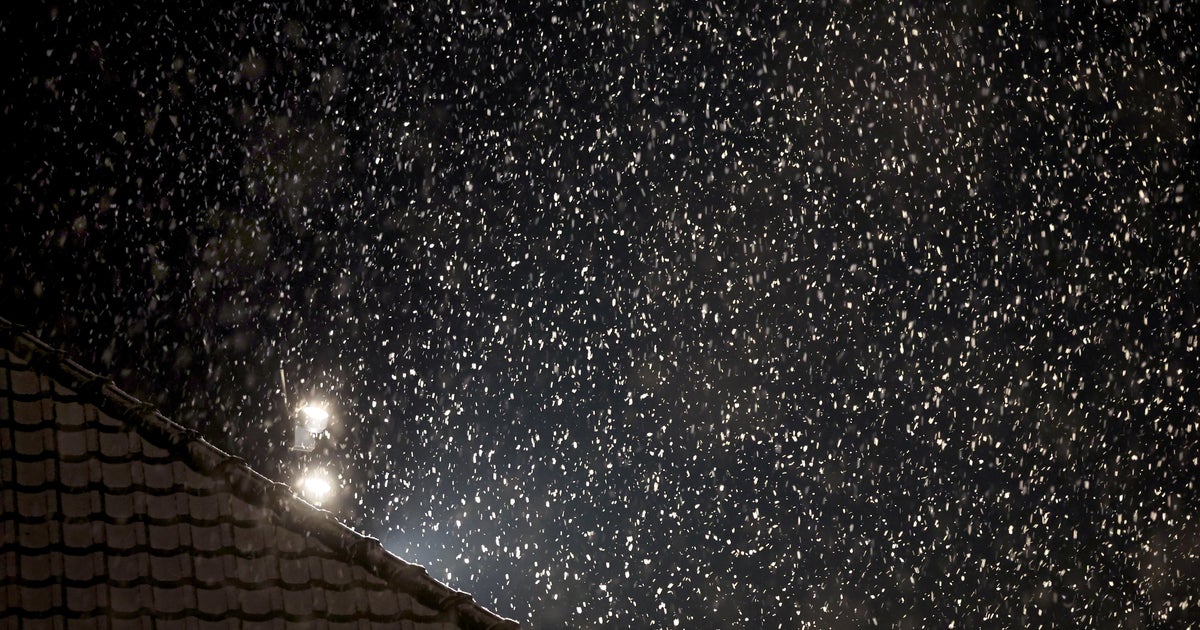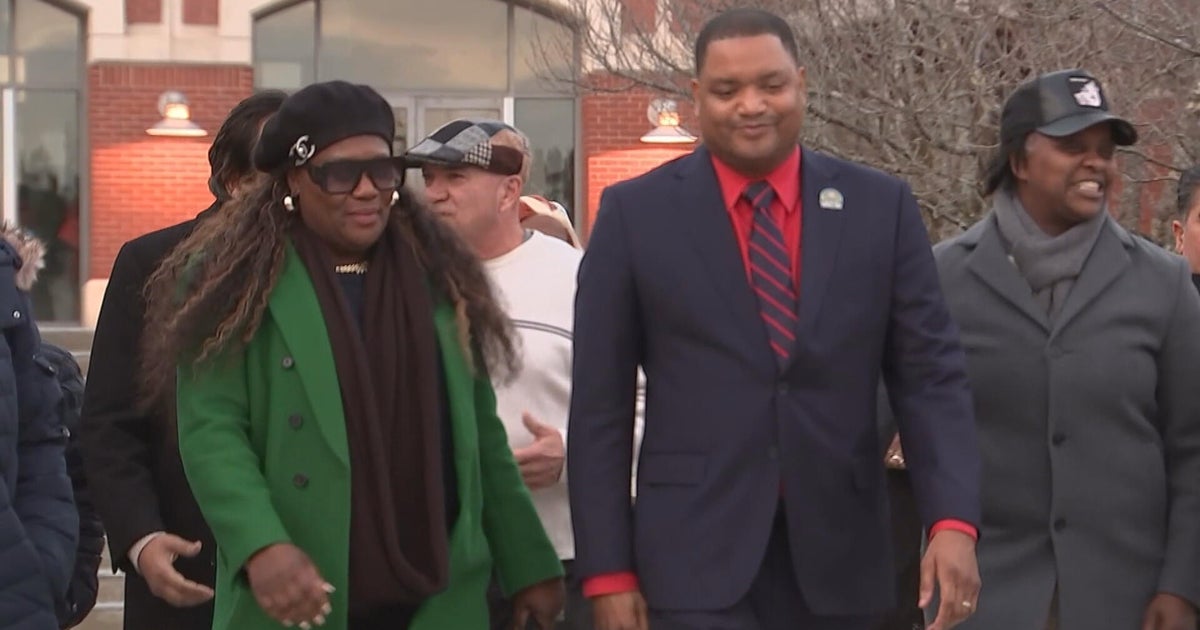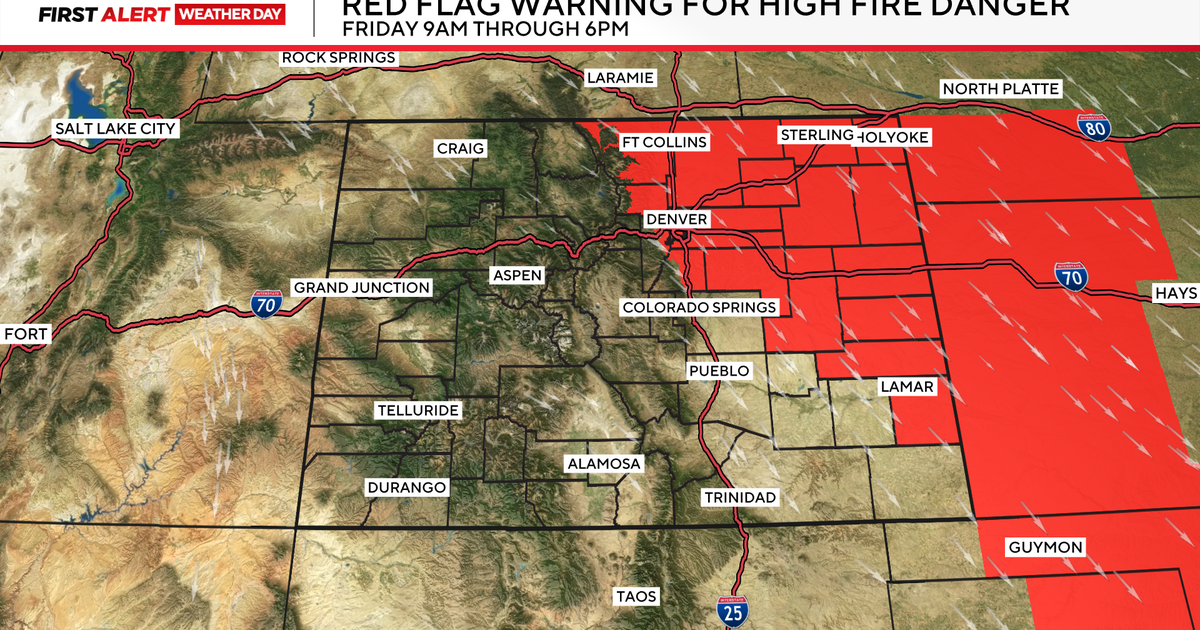What is "upwelling," and why is it making Atlantic Ocean temperatures in New Jersey colder?
OCEAN CITY, N.J. (CBS) — Families heading to the Jersey Shore this week are facing unusually cold ocean temperatures.
Professor Anna Pfeiffer-Herbert, who chairs Stockton University's Marine Science Program, said in the past week, the water temperature has plummeted from the low-to-mid-70s to the low-to-mid-50s around Atlantic City and shore towns to the south. She added those temperatures are "unusually cold for this time of late July, early August."
This weather phenomenon is known as "upwelling," which, Pfeiffer-Herbert explained, is caused specifically by winds from the south pushing water away from the shore.
"The nice warmed-up surface water moves out to the ocean, and deep water, which is cold, rises up to kind of fill the gap close to the coast," Pfeiffer-Herbert said. "Upwelling is a really cool phenomenon. It helps to feed the food web by bringing nutrients from the deep, so that cascades up through our fish and other sea life."
Pfeiffer-Herbert said upwelling is part of a natural weather pattern and not related to Tropical Storm Debby.
She added families at the shore can notice a haze in the atmosphere and water that's either clearer than normal or has a greenish tinge to it.
Chase Hoffman visited Ocean City with his family, and he's not happy about the cold temperatures.
"I'm disappointed because the ocean is usually one of my favorite things to do," Hoffman said. "I've just been trying to hope out that eventually it will get warmer, but by the looks of it, it's not going to be that way."

